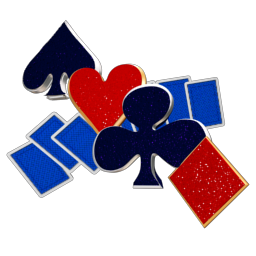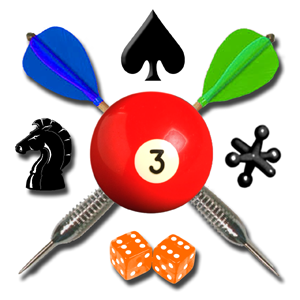Ideas are easy. Execution really matters.
I somewhat regularly read about “game designers” who are lacking ideas, usually via posts from the individuals themselves seeking good ideas for a game (from others). Mind you, I cannot lay claim to being the best game designer on the planet, but I can certainly tell you that anyone who says that they have no game ideas is definitely not a game designer.
The truth of the matter is that any real game designer always has too many ideas to be able to execute all of them, or even a significant percentage. If you do not have this problem, you best not fancy yourself a designer at all; instead, take a job with a game company where you can develop the ideas of somebody else, and maybe add a little design input every once in a while.
Here are a few characteristics of pseudo-designers that I have encountered over the many years I have been in this business:
- they think that “Quake, only with bigger guns” is an interesting idea;
- they focus on a single design idea to the exclusion of other approaches;
- they believe that their one idea is so valuable that others are just waiting to “steal” it;
- they think that an idea is somehow the same as a game design; and
- they have no idea how much effort is actually involved in building a game.
Whenever I hear one of these stories now, I just have to shake my head and sigh. Granted, early in my professional career, I was more likely to be swayed by somebody with a grand idea and (at least) a partial game design but, of course, the conversation usually ended with “you create my game and I will split the profits with you, 50/50.” Even when groups are formed to pursue a particular game design, unless they are properly funded, it almost always ends in failure.
I can hardly believe that people will claim they are a “good game designer”, but they cannot come up with a good idea to turn into a game design. When I worked at Quest Software, and we were wrapping up The Legend of Blacksilver (Apple II version, circa 1989), our entire development staff (of 4!) sat down at a local Burger King and brainstormed at least four game ideas to consider before the end of a fast food lunch; I still remember one of the ideas that was not chosen to pursue. Given that, I am astonished when somebody thinks that my company would bother to take their basic game idea, when we have a backlog of our own designs yet to be done, and could easily devise more when/if necessary.
When I first heard about the One Game A Month challenge, I was intrigued at the idea of trying to start clearing out the backlog of those designs (full and partial) we have wanted to create. Although I am not officially participating, primarily because after 30+ years, my game development goals are not congruent with the bulk of the “indie scene”, I realized that the way to get this done was to actually think less about game design, and focus on execution: actually getting the projects completed.
Execution is always the most important part of game development, because “wouldn’t it be cool if…” is always much easier to say than to do. Somebody has to program, somebody has to create artwork (likewise, sounds, music, levels, documentation, etc.), and it all needs to be put together and, most of all, finished. It is not an exaggeration to say that almost all (i.e., more than 90% of) games are never actually completed.
To give you some numbers on the extent of the Digital Gamecraft backlog, I spent an hour or so simply writing down the names of projects for which some design work had been done, including games that had been partially designed and researched, games which had fully documented designs, and several products in various stages of development. I stopped when I reached 32 projects, though there are certainly more.
The reason that 32 was a good place to stop was that I wanted to prioritize them using a simple binary selection process (a bracket system, if you will), knowing that all of the higher priority projects would spring immediately to mind. I went through the pairs of projects to generate a rough priority list, and then I manually tweaked the development and release order to create some variety in our lineup (i.e., not producing two games within the same genre back-to-back). Now I have a list of projects that, even if we could finish one per month, would take us almost until 2016, and that does not even include any of the four AAA games we pitched at E3 (and CGDC) back in 1997.
Our current project list, as it currently stands, contains 30 games, in 6 different genres, spanning approximately one dozen platforms, plus a productivity application and an information web site. If we can accomplish even half of that in the next 5 years, I will probably be extremely pleased (or, possibly, cloned 😉 ).
However, if your problem is with finding ideas, rather than actual execution of game designs, then it may be time to give up the concept of being a game designer.


